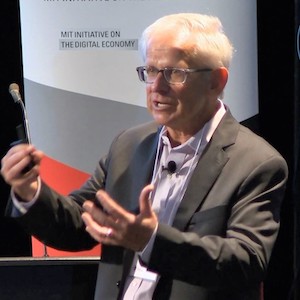 In early July 2023, the World Health Organization (WHO) issued its 2023 report on Emerging Technologies and Scientific Innovations: A Global Public Health Perspective. This insightful and detailed report is the result of strategic engagement with a panel of global health experts through the use of an online Delphi method, roundtable discussions, and key informant interviews. The purpose of this report is to identify innovations in research and emerging technologies that have the potential to impact global health in the next five to ten years.
In early July 2023, the World Health Organization (WHO) issued its 2023 report on Emerging Technologies and Scientific Innovations: A Global Public Health Perspective. This insightful and detailed report is the result of strategic engagement with a panel of global health experts through the use of an online Delphi method, roundtable discussions, and key informant interviews. The purpose of this report is to identify innovations in research and emerging technologies that have the potential to impact global health in the next five to ten years.
Low-cost Aplication Platforms (LCAP): What They Should Mean to Public Health
 Agency budgets continue to run tight, while the demands for data modernization continue to escalate. We are also seeing weakening markets – not strengthening markets – for core public health software systems like Immunization Information Systems (IIS) and Disease Surveillance/case management systems. One of the emerging, promising approaches are Low-cost Application Platforms (LCAP). What exactly are they, where did they come from, and are they a useful strategy for developing core public health applications?
Agency budgets continue to run tight, while the demands for data modernization continue to escalate. We are also seeing weakening markets – not strengthening markets – for core public health software systems like Immunization Information Systems (IIS) and Disease Surveillance/case management systems. One of the emerging, promising approaches are Low-cost Application Platforms (LCAP). What exactly are they, where did they come from, and are they a useful strategy for developing core public health applications?
- Login to post comments
Celebrating 25 Years of Open Source at the COSCUP Conference in Taiwan
 Navigating uncharted waters often leads to intriguing discoveries. Imagine immersing yourself in a realm that commemorates a quarter-century of Open Source accomplishment. Invited by Open Source Initiative (OSI) to reflect upon the 25 years of Open Source at COSCUP, a conference in Taiwan that focuses on coders, users and promoters of Open Source, I threw myself into these waters by proposing a review of history that is not unique around the globe, taking my perspective from South America and Europe to Asia, where I had never before ventured. You can read a full transcript of my talk here and check my critical take on the topic. After all, to review is to be able to identify where we failed and to be able to proceed from there.
Navigating uncharted waters often leads to intriguing discoveries. Imagine immersing yourself in a realm that commemorates a quarter-century of Open Source accomplishment. Invited by Open Source Initiative (OSI) to reflect upon the 25 years of Open Source at COSCUP, a conference in Taiwan that focuses on coders, users and promoters of Open Source, I threw myself into these waters by proposing a review of history that is not unique around the globe, taking my perspective from South America and Europe to Asia, where I had never before ventured. You can read a full transcript of my talk here and check my critical take on the topic. After all, to review is to be able to identify where we failed and to be able to proceed from there.
- Login to post comments
WHO Releases Report on Emerging Technologies and Scientific Innovations
- Login to post comments
On The Positive Effect of Collaboration and Information Sharing Among Physicians
 For better and for worse, our healthcare system is built around physicians. For the most part, they’re the ones we rely on for diagnoses, for prescribing medications, and for delivering care. And, often, simply for being a comfort. Unfortunately, in 2023, they’re still “only” human, and they’re not perfect. Despite best intentions, they sometimes miss things, make mistakes, or order ineffective or outdated care. The order of magnitude for these mistakes is not clear; one recent study estimated 800,000 Americans suffering permanent disability or death annually. Whatever the real number, we’d all agree it is too high. Many, myself included, have high hopes that appropriate use of artificial intelligence (AI) might be able to help with this problem. Two new studies offer some considerations for what it might take.
For better and for worse, our healthcare system is built around physicians. For the most part, they’re the ones we rely on for diagnoses, for prescribing medications, and for delivering care. And, often, simply for being a comfort. Unfortunately, in 2023, they’re still “only” human, and they’re not perfect. Despite best intentions, they sometimes miss things, make mistakes, or order ineffective or outdated care. The order of magnitude for these mistakes is not clear; one recent study estimated 800,000 Americans suffering permanent disability or death annually. Whatever the real number, we’d all agree it is too high. Many, myself included, have high hopes that appropriate use of artificial intelligence (AI) might be able to help with this problem. Two new studies offer some considerations for what it might take.
- Login to post comments
Open Policy Alliance: A New Program To Amplify Underrepresented Voices In Public Policy Development
 On behalf of the Open Source Initiative and the public policy team, I’m very pleased to share early news of our new educational program – one aimed at building and supporting a coalition of underrepresented voices from public benefit and charitable foundations. This new program – the Open Policy Alliance – seeks to empower these voices and enable them to actively participate in educating and informing US public policy decisions related to Open Source software, content, research, and education. The OPA is created in response to increased demand for public dialog and stakeholder engagement in these adjacent and related “open domains”.
On behalf of the Open Source Initiative and the public policy team, I’m very pleased to share early news of our new educational program – one aimed at building and supporting a coalition of underrepresented voices from public benefit and charitable foundations. This new program – the Open Policy Alliance – seeks to empower these voices and enable them to actively participate in educating and informing US public policy decisions related to Open Source software, content, research, and education. The OPA is created in response to increased demand for public dialog and stakeholder engagement in these adjacent and related “open domains”.
- Login to post comments
Does your Healthcare Company have a Platform Business Model?
 Your Company Has A Technology Platform…But Do You Have A Platform Business Model and Strategy? Today in healthcare, platforms are understood mostly as technology. That’s not wrong, but it’s limiting and it misses a huge opportunity to adopt a platform business model. In most other industries platforms are also understood as a business model and strategy. Outside of healthcare, there are 45+ books focusing on this topic...A platform business model connects producers and consumers — creating an ecosystem that facilitates value exchange and interaction between them. Unlike traditional linear business models, where companies primarily produce and sell products or services directly to customers, platform models serve as intermediaries, making connections and facilitating interactions between two (or more) parties.
Your Company Has A Technology Platform…But Do You Have A Platform Business Model and Strategy? Today in healthcare, platforms are understood mostly as technology. That’s not wrong, but it’s limiting and it misses a huge opportunity to adopt a platform business model. In most other industries platforms are also understood as a business model and strategy. Outside of healthcare, there are 45+ books focusing on this topic...A platform business model connects producers and consumers — creating an ecosystem that facilitates value exchange and interaction between them. Unlike traditional linear business models, where companies primarily produce and sell products or services directly to customers, platform models serve as intermediaries, making connections and facilitating interactions between two (or more) parties.
- Login to post comments
HITAC Task Force Comments on ONC HTI-1 NPRM
 On June 15, 2023, the Health Data, Technology, and Interoperability: Certification Program Updates, Algorithm Transparency, and Information Sharing (HTI-1) Proposed Rule Task Force 2023 released its recommendations on the Health Data, Technology, and Interoperability: Certification Program Updates, Algorithm Transparency, and Information Sharing (HTI-1) Proposed Rule which proposes new provisions from the 21st Century Cures Act and makes updates to the ONC Health IT Certification Program (Certification Program). The limited-engagement task force met intensely during April, May, and June 2023 to develop its own set of observations and recommendations which were submitted to the Office of the National Coordinator for Health Information Technology (ONC).
On June 15, 2023, the Health Data, Technology, and Interoperability: Certification Program Updates, Algorithm Transparency, and Information Sharing (HTI-1) Proposed Rule Task Force 2023 released its recommendations on the Health Data, Technology, and Interoperability: Certification Program Updates, Algorithm Transparency, and Information Sharing (HTI-1) Proposed Rule which proposes new provisions from the 21st Century Cures Act and makes updates to the ONC Health IT Certification Program (Certification Program). The limited-engagement task force met intensely during April, May, and June 2023 to develop its own set of observations and recommendations which were submitted to the Office of the National Coordinator for Health Information Technology (ONC).
- Login to post comments
Revisualizing and Recoding Health Care
 Two new books have me thinking about healthcare, although neither is about healthcare and, I must admit, neither of which I’ve yet read. But both appear to be full of ideas that strike me as directly relevant to the mess we call our healthcare system. The books are Atlas of the Senseable City, by Antoine Picon and Carlo Ratti, and Recoding America: Why Government Is Failing in the Digital Age and How We Can Do Better, by Jennifer Pahlka. Dr. Picon is a professor at The Harvard Graduate School of Design, and Professor Ratti is head of MIT’s Senseable Lab. Drawing on the Lab’s work, they write: “We hope to reveal here an urban landscape of not just spaces and objects, but also motion, connection, circulation, and experience.” I.e. dynamic maps. Traffic, weather, people’s moment-by-moment decisions all change how a city moves and works in real time.
Two new books have me thinking about healthcare, although neither is about healthcare and, I must admit, neither of which I’ve yet read. But both appear to be full of ideas that strike me as directly relevant to the mess we call our healthcare system. The books are Atlas of the Senseable City, by Antoine Picon and Carlo Ratti, and Recoding America: Why Government Is Failing in the Digital Age and How We Can Do Better, by Jennifer Pahlka. Dr. Picon is a professor at The Harvard Graduate School of Design, and Professor Ratti is head of MIT’s Senseable Lab. Drawing on the Lab’s work, they write: “We hope to reveal here an urban landscape of not just spaces and objects, but also motion, connection, circulation, and experience.” I.e. dynamic maps. Traffic, weather, people’s moment-by-moment decisions all change how a city moves and works in real time.
- Login to post comments
The Emergence of Artificial Intelligence And Why Open Source Matters
 Sharing knowledge and sharing code has always been a key driver for innovation in Artificial Intelligence. Researchers have gathered together since AI was established as a field to develop and advance novel techniques, from Natural Language Processing to Artificial Neural Networks, from Machine Learning to Deep Learning. The Open Source community has played a key role in advancing AI and bringing it to solve real-world problems. Libraries and frameworks like TensorFlow, PyTorch, Keras, and Scikit-learn, for example, have allowed researchers and data scientists to study and make use of AI.
Sharing knowledge and sharing code has always been a key driver for innovation in Artificial Intelligence. Researchers have gathered together since AI was established as a field to develop and advance novel techniques, from Natural Language Processing to Artificial Neural Networks, from Machine Learning to Deep Learning. The Open Source community has played a key role in advancing AI and bringing it to solve real-world problems. Libraries and frameworks like TensorFlow, PyTorch, Keras, and Scikit-learn, for example, have allowed researchers and data scientists to study and make use of AI.
- Login to post comments
ONC HTI-1 NPRM Through Public Health Eyes
 On April 18, 2023, the Office of the National Coordinator for Health Information Technology (ONC) published for comment the Health Data, Technology, and Interoperability: Certification Program Updates, Algorithm Transparency, and Information Sharing (HTI-1) Proposed Rule which proposes new provisions from the 21st Century Cures Act and makes updates to the ONC Health IT Certification Program (Certification Program). Weighing in at over 500 pages (the pre-release version), this proposed rule provides some refinements to existing ONC programs, corrections to others, and extensions to yet other provisions. ONC provides additional materials about this proposed rule, including fact sheets, blog posts, and records from topical webinars on their website. Note especially the information provided about a joint ONC-CDC sponsored informational webinar which took place on May 24, 2023, and is available for playback on the site.
On April 18, 2023, the Office of the National Coordinator for Health Information Technology (ONC) published for comment the Health Data, Technology, and Interoperability: Certification Program Updates, Algorithm Transparency, and Information Sharing (HTI-1) Proposed Rule which proposes new provisions from the 21st Century Cures Act and makes updates to the ONC Health IT Certification Program (Certification Program). Weighing in at over 500 pages (the pre-release version), this proposed rule provides some refinements to existing ONC programs, corrections to others, and extensions to yet other provisions. ONC provides additional materials about this proposed rule, including fact sheets, blog posts, and records from topical webinars on their website. Note especially the information provided about a joint ONC-CDC sponsored informational webinar which took place on May 24, 2023, and is available for playback on the site.
- Login to post comments